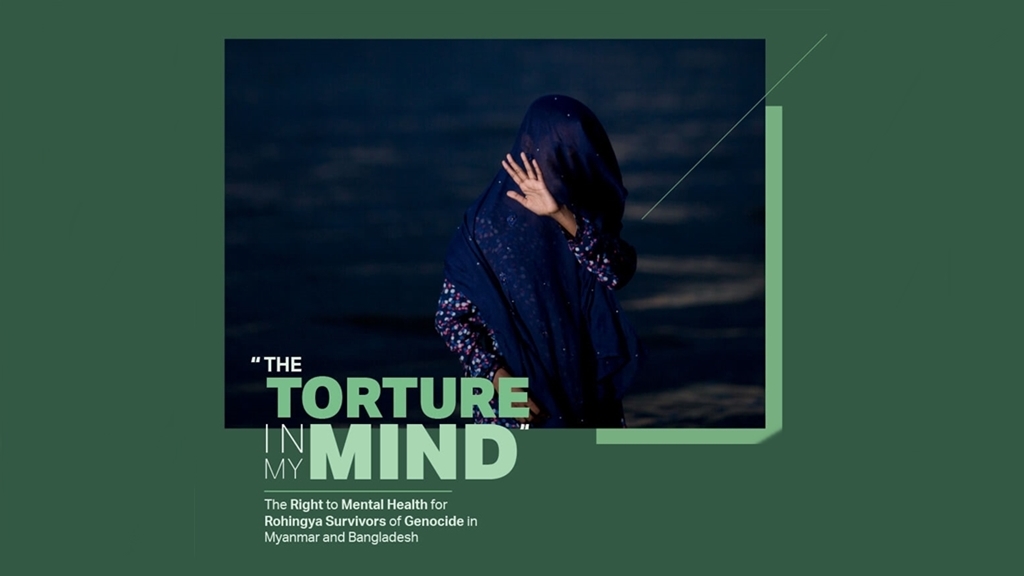
“The Torture in My Mind” – The Right to Mental Health for Rohingya Survivors of Genocide in Myanmar and Bangladesh
- 13/12/2020
- 0
By Fortify Rights
Rohingya refugees in Bangladesh continue to experience severe mental health impacts of genocide and mass atrocity crimes perpetrated in Myanmar, adversely impacting their daily lives and functioning long after physical wounds have healed.
This report is based on a participatory action research study conducted by a team of Rohingya researchers trained by Fortify Rights. It provides quantitative data revealing high levels of trauma, depression, and distress, including staggering rates of Post-Traumatic Stress Disorder, experienced by Rohingya refugees in Bangladesh.
The findings in this report provide new evidence of international crimes perpetrated by Myanmar authorities and demonstrate that the mental harm experienced by Rohingya is not only due to genocidal violence in 2017 but also pervasive human rights violations perpetrated against Rohingya in Myanmar for many years.
Based on the findings in this report, the international community should address the root causes of the Rohingya mental health crisis and ensure perpetrators of mass atrocity crimes are held accountable while also working to ensure Myanmar restores Rohingya rights. The Government of Bangladesh should urgently ensure access to rights for refugees, including adequate living standards, and increase the availability of culturally appropriate mental health and psychosocial support services.
Read Full Report:
